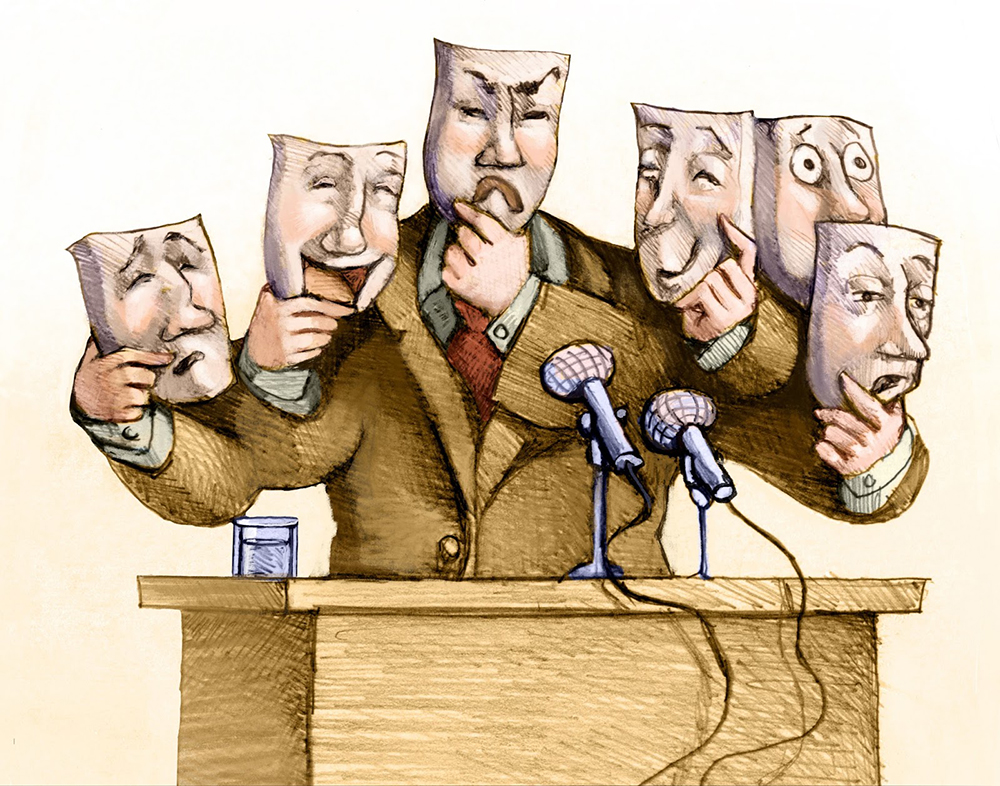
Sudan: A Glimpse of Intensive Media Deception
By Youssef Hamad
With the outbreak of fighting in Sudan between the armed forces and the Rapid Support Forces (RSF), misleading and biased news and information found their way to spread alongside bombs and bullets. A new war emerged between the two parties, centered around media occupation of the public space.
Although the phenomenon of occupying the public space with misleading and biased information is not new in Sudan, the significant difficulties and challenges that journalists faced during the conflict have contributed to it and hindered the process of verifying information.
Regular reports from the Sudanese Journalists Union during the war showed that some journalists were arrested and the capital, Khartoum, was devoid of journalists. Media institutions, including the radio and television building, were disabled by the RSF.
With the outbreak of the war in mid-April last year, the conditions became favorable for the return of a familiar pattern of media control, filled with propaganda, deception, and biased agendas.
After the initial success of the revolution in Sudan and the formation of the government of Dr. Abdalla Hamdok (2019), the country experienced economic recession and setbacks. However, another type of industry thrived - the electronic press industry, even though it appeared unprofitable on the surface.
Distinguished news websites started to add the English word News to their names.
Doubts have long arisen, during Omar al-Bashirs rule and the rule of the Muslim Brotherhood, about the funding sources of many institutions that emerged in various sectors. These doubts still persist regarding the media sector.
Even though gathering evidence of the use of public funds to seize and control the media is difficult, biased editorial coverage and lack of funding transparency lend credibility to circulating suspicions.
During the active days of the revolution, while the streets were filled with bullets and the peaceful protesters were demanding the overthrow of the Omar al-Bashir regime, unknown and financially ambiguous news websites swarmed to create the most devastating impact through misleading and false news. Among the 40 active websites until 2020, 30 emerged after the initial success of the revolution, benefiting from the atmosphere of freedom. These websites were created in a manner similar to social media pages, particularly on Facebook.
The purpose of these websites was to tarnish the image of the transitional government and everything related to the goals of the peaceful revolution and the democratic civilian transition in the country.
In fact, the Muslim Brotherhood regime (1989-2019) developed expertise in creating these types of websites and pages on Facebook, such as the Sudanese Center for Press Services (SMC), and other websites that supported Omar al-Bashirs regime managed by the security apparatus, in addition to pages on social media platforms.
After the fall of Omar al-Bashirs regime, the fragile state of the country and the intersection of interests between military and civilian factions, as well as international players, created a lucrative market for news websites. However, their contents have carried clear agendas, revealing their backers and serving their political and economic interests.
Since the coup on October 25, 2021, it seems that both sides of the coup, the military and the Rapid Support Forces (RSF), have adopted the methods of the Muslim Brotherhood regime in media, especially on Facebook, which is favored by wide segments of Sudanese society. They have developed and enhanced these techniques in their ongoing conflict.
To win the media battle between them, they have leveraged high-level expertise provided by global companies in this field.
Digital platforms and covert or anonymously funded publishing institutions pose a significant danger to societies. The type of ownership influences the nature of the produced content, while the identity of the funder shapes the message, content, and purpose, presenting a deceptive choice to recipients. Media messages have historically influenced people in times of war and peace, in buying and selling, and even in shaping behavior in everyday life.
For journalists, doubts about the funding of media institutions were not significant. Many of them were certain that at least one in every three private institutions was directly or indirectly funded by the government. However, the more dangerous phenomenon that journalists have begun to discover is related to the emergence of financially ambiguous institutions, or those funded by foreign governments and organizations.
For example, when the governments Committee for the Dismantling of the Regime of the Thirty investigated, it discovered that a group of private media institutions was secretly funded by the government and were harnessed for propaganda and to serve the ousted president Omar al-Bashirs regime. The Ministry of Culture and Information in Hamdoks government later said that the military and the Muslim Brotherhood had hired digital companies to flood the public space with messages against the civilian government and the political forces aspiring for democracy.
When discussing the websites and the journalistic activity of Facebook pages, journalists and news consumers refer to the context of the proliferation of publishing caused by the internet. These websites deliver journalistic packages whose creators and funders are unknown. People are involuntarily subjected to their attention-grabbing headlines and misleading information. The harms of these platforms, particularly in times of war, do not need further explanation.

